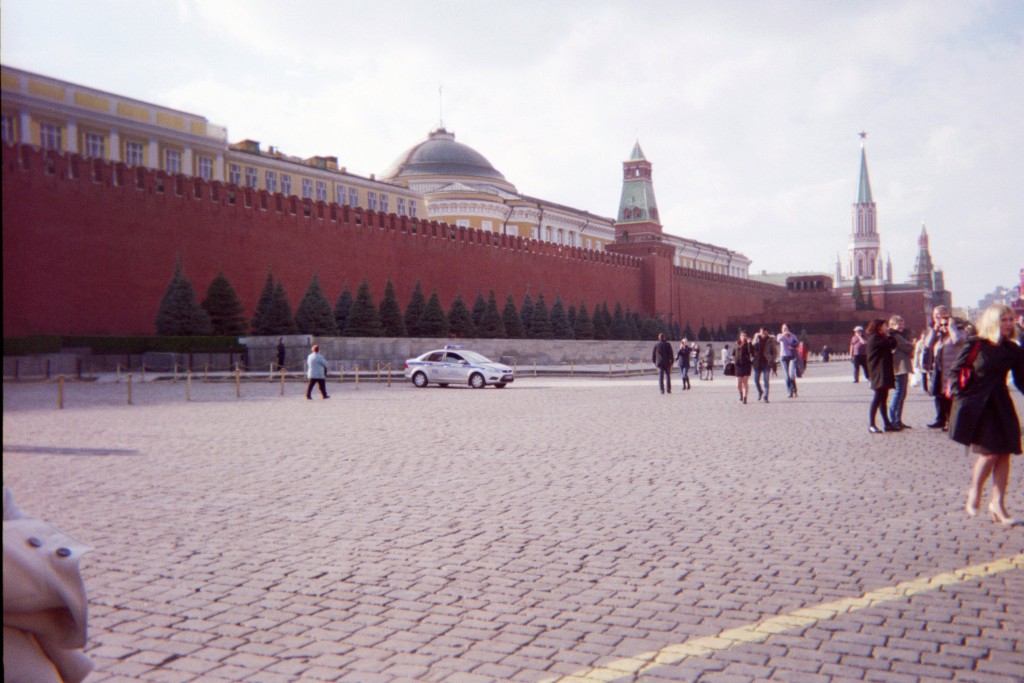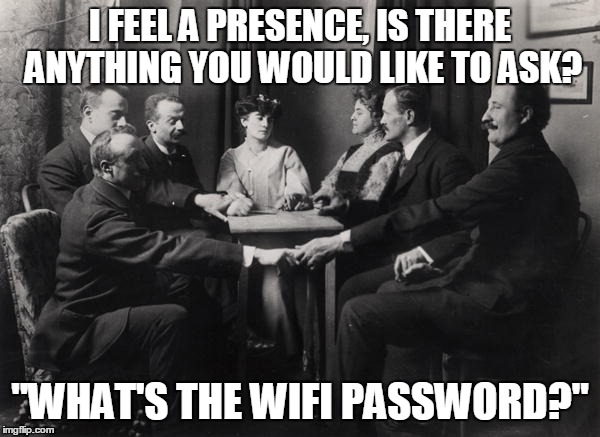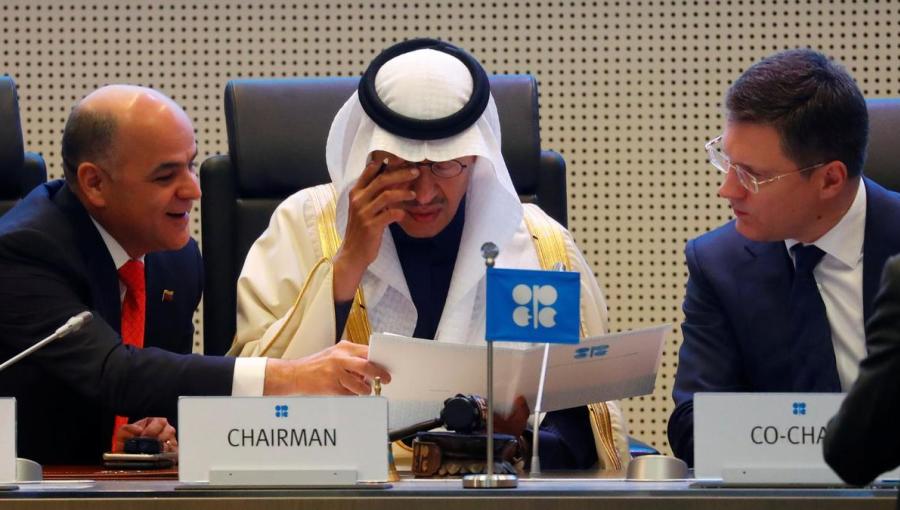
By Gilbert Doctorow
I was delighted with the wide distribution given to my last essay on the ‘Tereshkova Amendment’ to the Russian Constitution which, when the reform of the Basic Law is approved by nationwide referendum, as widely anticipated, will set the presidential terms served up to now by Vladimir Putin back to zero so that he may run again in the elections of 2024 and 2030 if he so wishes. My essay was reposted by several portals in the United States and links to the essay were published by still other outlets in Europe.
I was also pleased by the substantial number of reader comments, even though the great majority did not agree with my assertion that Putin was foolhardy to accept that amendment, subject to the Constitutional Court finding that it does not contradict the intent of the Fundamental Law. I had expressed the pious hope that Vladimir Vladimirovich would quietly direct the Court to do the decent thing and reject the amendment. However, by its decision of 16 March the Court has now approved the entire package of amendments. In light of this development, I feel free to move to the next level of discussion with my readers, responding to their objections and detailing why the very prospect of Putin in power to 2036 will undo his legacy of stable nation-building. I will conclude by setting out an alternative scenario which is far more likely to ensure policy continuity after 2024 while moving Russia’s democracy to a new level of maturity. This path remains open to Mr. President if he rethinks the likely consequences of the Tereshkova Amendment and moves to correct his error well before the 2021 parliamentary elections, when the “regime” may suffer a humiliating defeat.
The objections from readers to my stand on Putin’s running for the presidency again mostly came down to one point that had been raised by Tereshkova herself as justification for her initiative: that the international arena is so volatile and poses so many threats to the country that Vladimir Vladimirovich’s proven experience and dedication to national welfare is and will be required and valued more than ever. Some readers’ comments name the corona virus or the oil price war with Saudi Arabia, or the near war with Turkey over Syria as indicative of the pressing need for steady leadership by Putin into the distant future. Others point to the aggressive economic, military strategic and propaganda war against Russia being waged by the United States and its allies in Europe to justify the indefinite continuation in office of a leader who has so consistently and effectively foiled their ambitions to put Russia in its place under their heel and instead restored his country’s status as a great power.
All of the foregoing is true, of course. We do live in extraordinary times and “revisionist” or “resurgent” Russia, to use the vocabulary of Foreign Affairs magazine, faces strong opposition from an “international community” intent on preserving the 1990s status quo when Russia was on its knees. However, the proposition that Russia has no one capable of taking over the baton from Vladimir Vladimirovich does not hold up to scrutiny.
It is all too easy to forget that when he took over from Boris Yeltsin just after New Year’s in 2000, Putin was a nonentity who had been chosen for his unquestioned loyalty to the family and who enjoyed the support of Boris Berezovsky and other oligarchs precisely because they believed he would be easy to manage. As for the nation at large, Putin’s only credit was his brutal conduct of the war in Chechnya which seemed to be bringing results and which proved his patriotism. He had been an efficient assistant to the liberal mayor of St. Petersburg Sobchak and did well with foreign, especially German business leaders behind closed doors. But he was an unimpressive public speaker and he badly failed his first exposure to the press when he answered reporters’ questions about what happened to the submarine Kursk with the flat statement: “It sank.”
From this weak start, Putin rose quickly and steadily to become finally the world’s leading statesman that he is today. A whole generation of administrators and political operatives has grown up in his shadow. I have no doubt that there are among them worthy successors if given the chance.
If I may invoke a bit of folk wisdom: the cemeteries are filled with irreplaceable people.
When he delivered his decision on the amendment, Putin added another line of argumentation in its favor, namely Russian traditions of governance. Some of my readers have taken that up and expanded upon it in their comments. They look to Russian history, with its millennial tradition of autocratic rulers to justify keeping the incumbent tsar on his throne. Some place Putin in the ranks of Russia’s Greats: Peter and Catherine in the 18th century to plead his case.
My critics argue from exceptionalism, which is always risky, and second, they fail to appreciate the value of institutions over people in the life of nations.
On the subject of exceptionalism, Vladimir Putin himself has always been equivocal. On the one hand, he regularly denounces American exceptionalism of the variety first formulated by Madeleine Albright in her description of the nation that stands taller and sees farther than others, all of which was later hand delivered to the Kremlin by Barack Obama when he sought to explain to Vladimir what was what.
On the other hand, Putin has always defended the special traditions of each nation and the right of each nation to preserve its uniqueness without interference from others. Yet, Putin has also acknowledged certain universal rules of political science, in particular the value of alternation in power of competing political forces. So it only comes down to when that can be implemented. To this, I respond: there is never a good time, there are always mitigating circumstances one can claim against applying the rule. And for this very reason, the rule of alternation should trump all other considerations without discussion.
I will not take the reader’s time belaboring the obvious: an unlimited time in power means institutionalized corruption. “The bums” are never given the boot. And, what is less commonly seen, incompetence is the reverse side of the corruption coin. This is a non-negotiable issue.
Looking beyond my own readers and considering more broadly the analysis which so many Western commentators have published these past few days regarding Putin’s decision on 2024, I find a certain commonality of approach which is entirely consistent with how our Russianists have been writing and lecturing for decades now: all focus on Putin, the man as if he were the alpha and omega of Russia, the country and its polity. That is to say, these commentators apply to Russia the same personalization of politics which they use at home in the United States, where identity has long replaced policy on the ballot. We vote by gender, by race, by ethnicity and not by pro- or anti-labor positions, by redistributive or wealth-protecting policies. They vote for good or bad autocrats.
In the same spirit, instead of considering what this decision on terms in office means for those Russians who believe in rule of law, or in the commitments of their leader not to hang onto power into his dotage repeated many times in the past and as recently as on 16 January 2020, our commentators try to delve into Putin’s thought processes and to explain the flip-flop on 10 March. Since no one has yet placed a microphone under the pillow of the Russian President, all of the commentary we read is pure and idle speculation, whereas the views of Russians on the decision taken can be sampled, as I will do in what follows.
I have a residential base in St. Petersburg and in normal times I am there for two weeks out of each couple of months. My wife and I have many contacts among Russians at all levels, from our regular taxi driver to our neighbor and fix-it man at our country dacha, to intellectuals and professionals in both Petersburg and Moscow. To a man, or woman, our friends and acquaintances are all Russian patriots. Several have served their country in the performing arts, in journalism, in design of launch vehicles for space missions and in other ways. They have all been pro-Putin, until now…
The trigger for the change of heart of many is deep disappointment over the deception, the fraudulent nature of the upcoming referendum on amendments to the Constitution now that the whole exercise seems to have only one purpose: to extend Putin’s time in power. To be sure, this rabbit was pulled out of a hat once before, when Vladimir Putin and Dimitri Medvedev switched roles in 2012. But that trick conformed to the letter of the law, even if it was, shall we say, sneaky. The decision to set Putin’s time in office back to zero now is an insult to the intelligence and so doubly offensive.
That the maneuver is unseemly is supported by the obnoxious way in which it has been defended, something which none of our Western commentators seems to have picked up.
After coming under attack from various political activists and even from her own home town where she had a street named after her for her achievements in outer space, Tereshkova defended herself and her amendment, saying that she has been getting letters of support from “simple people” all around Russia. In the same vein, Chairman of the State Duma Vyacheslav Volodin declared that “those who are against Tereshkova are against Russia.” But then this former head of the presidential administration is the same man who said previously that “if there is no Putin, there is no Russia.” I think it is fair to call this type of argumentation from both Tereshkova and Volodin unashamedly Stalinist in nature.
And that is exactly what one my close friends has written to me using colorful terminology that mines the treasures of the Russian language in the same manner as Putin himself so often does. I offer here a free translation.
“Like you, we are not delighted by the presidential terms of Putin being turned back to zero. Society is tired, people are tired of this. It looks like he has decided to beat Stalin’s record. But the main thing is that this is being done in a clumsy way, in the spirit of Soviet propaganda – ‘upon the request of the workers.’ Tereshkova tells us that every day she is receiving packs of letters expressing gratitude for her initiative. This is propagandistic Soviet primitivism.
For the moment, we don’t know if we will take part in the voting. But if we do go to the polls, of course, we will vote against the amendments and the reset on terms in office.”
It is widely assumed in the West that there is no opposition to Putin and Putinism in the State Duma, only in the so-called non-systemic opposition of people like Alexei Navalny and Ksenia Sobchak who never made it past the 5% minimum level of support to enter the Duma. And, I must concede that when the Tereshkova amendment came up for a vote, two of the Duma parties which have regularly put up candidates to run against Putin in the presidential elections, Sergei Mironov’s A Just Russia and Vladimir Zhirinovsky’s LDPR spoke in its favor. However, what is largely overlooked by our Russianists is that one party, Gennady Zyuganov’s Communists, had the courage and persistence to speak against the amendment. These are the same Communists who have traditionally been the fiercest competitor of United Russia and of its centrist predecessors; the same Communists who narrowly lost to Yeltsin in 1996 because of flagrant electoral fraud assisted by U.S. agents over fears for democracy in Russia. And yet today, ironically, the centrist parties have defended a Stalinist vision of Russia’s presidency while the Communists were backers of full-blooded democracy, meaning alternation in power.
That is not all.
On 10 March, when Tereshkova introduced her amendment on resetting the terms in office of the sitting president, another deputy introduced a bill calling for early Duma elections. Though this was rejected out of hand by Vladimir Putin when he spoke to the chamber a couple of hours later, it is this bill which better deserved his backing. Early elections were supported by one party alone, again the Communists, who said they had nothing to fear. Such elections were likely put an end to the majority position of United Russia, which has lost substantial support in the population ever since the retirement age was raised a year or so ago. This is why they said no. However, their loss of a majority is precisely what could trigger a new balance of power and the scenario for political consolidation that I am recommending.
When he spoke about his intended changes to the Russian Constitution during his annual “state of the nation” address to the bicameral legislature on 15 January, Vladimir Putin suggested that his intention was to readjust the balance of power among the three branches of government by raising the rights and prerogatives of the legislature. By trimming slightly the powers of the President in this process he would, in effect, make it easier to find someone to fill his shoes. Moreover by bringing the Duma into greater consultation in formation of the cabinet, he would be raising their commitment to the system in exchange for greater responsibility.
At the time, Putin mentioned specifically his impression from regular meetings with the leaders of the Duma parties that are all patriots. The logic from this was that when the Medvedev cabinet peremptorily resigned following the presidential address, some of the leading parliamentarians from outside United Russia should have been invited to take up ministerial portfolios. That did not happen. Instead the cabinet itself was depoliticized and filled with technocrats.
Assuming that Putin wishes to ensure that the broad lines of his policies continue after he leaves office, whatever that date may be, I believe that the recent missed opportunity should be revisited and preparations made for forming a government of national unity that distributes ministerial portfolios to all of the Duma parties. By their service in the intervening years, this would provide the best indications of who will deserve to run in the presidential election of 2024 in which Putin will choose not to take part. It will remove the present cynicism and disappointment of many patriotic Russians over the way high politics is evolving and provide a renewed interest in elections with optimism for the future.
Over the long term, coalition governments or ‘power sharing’ have their down sides, I know only too well from the experience of the Kingdom of Belgium, or in neighboring Germany. These include inconsistencies in the various domestic and foreign policies implemented and possible incompetence of individual ministers and their teams. However, in the short term it is worth taking the risk to avert mass demonstrations when the 2021 Duma elections come, not to mention the presidential elections of 2024. This is a crucial step in Russia’s march towards mature democracy that should not be ignored.
Gilbert Doctorow is a Brussels-based political analyst. His latest book Does Russia Have a Future? was published in August 2017. Reprinted with permission from his blog.
© Gilbert Doctorow, 2020

